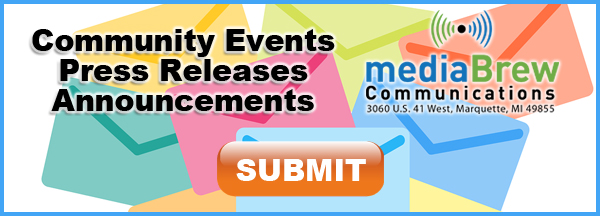ASHLAND, Wis. – A conservation coalition released a plan this week detailing strategic priorities for natural resource management in the Chequamegon Bay region of the Lake Superior Watershed. The Chequamegon Bay Area Partnership (CBAP) hopes the plan will focus and expand upon its work to improve the ecological, economic and social fabric of the Chequamegon Bay area. The group has identified several priorities, including runoff management, sediment reduction, habitat protection and restoration.
“Every agency or group part of CBAP has their own charge and priorities, but all of us are working toward the same goal of having healthy natural resources around the Chequamegon Bay area,” said Randy Lehr, bro professor of sustainable regional development at Northland College.
Since 2010, CBAP has devoted about $1 million of Great Lakes Restoration Initiative (GLRI) funding for three different projects. Northland College secured the money from GLRI and other funding agencies to provide financial support to CBAP projects. In turn, CBAP members have also shared funds so that the conservation coalition may achieve more in the way of natural resource management.
“It makes sense to work together and this document is the first attempt to tell the story of what CBAP is, what it has accomplished so far and what the partners feel are its collective priorities,” Lehr said.
Inaddition, the plan calls for CBAP to promote more engagement with the general public to address water issues and climate change.
“The large storm events and resulting sediment plumes in Chequamegon Bay last summer were a reminder to us that there’s still a lot of work we have to do to improve our natural resources and prepare our communities for the effects of our changing climate,” said Lehr.
CBAP formed in 2009 in response to the U.S. Environmental Protection Agency’s implementation of the Great Lakes Restoration Initiative. The 15 active CBAP partners include tribes, educational institutions, nonprofit organizations, local, state and federalagencies. The partnership outlined the plan to improve the scope and effectiveness of natural resource management efforts in the Chequamegon Bay area, Lehr said.
“But we’ve only scratched the surface,” said Matt Hudson, watershed program coordinator at the Sigurd Olson Environmental Institute housed at Northland College.
Hudson is lead author of the CBAP’s strategic plan.
“It’s a great starting point, but we recognize there’s lots of work needed to refine these priorities as CBAP continues to grow and evolve,” he said.
To view the plan and find more information about CBAP, visit the CBAP website at https://www.northland.edu/cbap.htm.

Click To Submit Press Releases, News, Calendar Items, and Community Events to mediaBrew radio stations WFXD, WKQS, WRUP, GTO, Fox Sport Marquette, and 106.1 The Sound
Marquette, Michigan Calendar; Ishpeming Calendar; Negaunee Calendar; Gwinn Calendar; Negaunee Calendar and Events; Upper Peninsula Calendar of Events; Escanaba Events and Calendar




